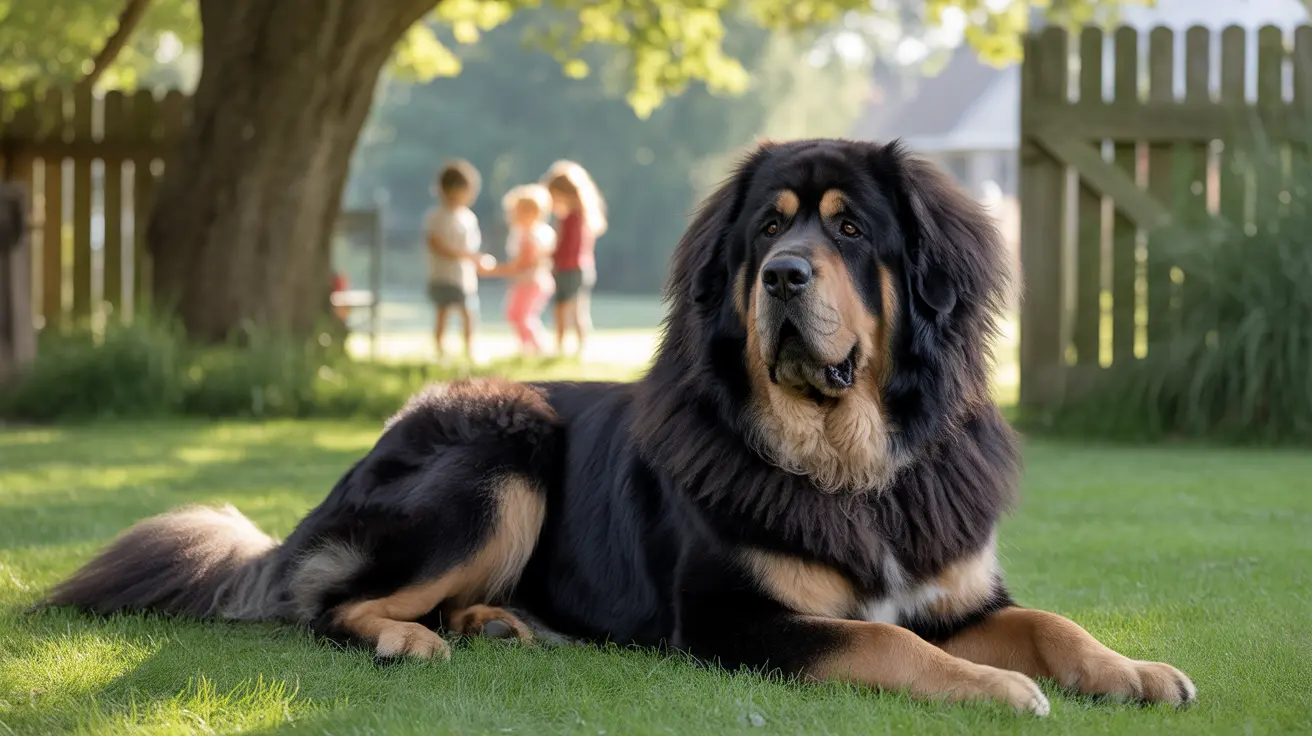Understanding Mastiff Temperament
Mastiffs are naturally gentle, patient, and affectionate dogs who form strong bonds with their family members. Their calm and dignified nature typically makes them excellent family companions. While they can be protective, this usually manifests as alertness rather than aggression.
These dogs were historically bred as guard dogs and estate protectors, which contributes to their natural watchdog instincts. However, modern Mastiffs are far more likely to deter threats with their impressive size and deep bark than with aggressive behavior.
Factors That Influence Mastiff Behavior
Genetics and Breeding
A Mastiff's basic temperament is significantly influenced by genetics. Responsible breeders prioritize temperament in their breeding programs, selecting parent dogs with stable, non-aggressive personalities. This genetic foundation plays a crucial role in developing well-adjusted adult dogs.
Early Socialization
Proper socialization during puppyhood is essential for developing a well-balanced Mastiff. Exposure to various people, animals, and environments helps prevent fear-based reactions and builds confidence. This early learning period shapes how the dog will interact with the world throughout its life.
Training and Environment
Consistent, positive training methods are crucial for Mastiffs. These sensitive dogs respond well to gentle guidance but may develop defensive behaviors if treated harshly. A stable home environment and clear boundaries help prevent any potential aggressive tendencies.
Common Misconceptions About Mastiff Aggression
Many people mistakenly assume Mastiffs are aggressive due to their size and historical role as guard dogs. However, statistics show that Mastiffs are involved in fewer aggressive incidents than many other breeds. When incidents do occur, they're often related to poor training, lack of socialization, or mishandling rather than inherent aggression.
Signs of Normal vs. Concerning Behavior
Normal Mastiff behavior includes:
- Calm, dignified demeanor
- Gentle interaction with family members
- Alert barking at unusual sounds
- Protective positioning near family
Concerning behaviors that may need professional attention:
- Excessive fearfulness
- Unprovoked growling
- Resource guarding
- Aggressive reactions to routine situations
Responsible Mastiff Ownership
Successful Mastiff ownership requires commitment to:
- Early and ongoing socialization
- Consistent, positive training methods
- Regular exercise appropriate to their energy level
- Proper veterinary care
- Supervision around children and other animals
Frequently Asked Questions
Are Mastiffs naturally aggressive or gentle dogs?
Mastiffs are naturally gentle dogs. Despite their impressive size, they typically display a calm, patient, and affectionate temperament, especially with their family members.
What role does socialization play in preventing aggression in Mastiffs?
Socialization is crucial in preventing aggression. Early exposure to various people, animals, and situations helps Mastiffs develop confidence and appropriate responses to new experiences.
How can I safely train my Mastiff to minimize the risk of aggressive behavior?
Use positive reinforcement training methods, maintain consistency, and avoid harsh corrections. Focus on rewarding good behavior and establishing clear boundaries from puppyhood.
Do Mastiffs tend to be protective or aggressive toward strangers?
Mastiffs are naturally protective but not typically aggressive toward strangers. They may be aloof or watchful around new people but should not display unprovoked aggression.
Why do Mastiffs have a reputation for aggression despite being generally calm?
This reputation largely stems from their imposing size and historical role as guard dogs. Their physical presence can be intimidating, but their actual temperament is typically gentle and patient.
Conclusion
While Mastiffs can be protective of their families, they are not inherently aggressive dogs. With proper breeding, socialization, training, and responsible ownership, Mastiffs typically display their natural gentle giant personality. Understanding their true temperament helps ensure a successful relationship with these magnificent dogs.






